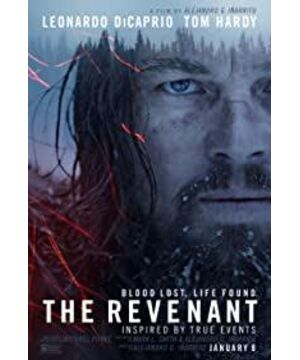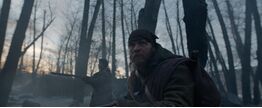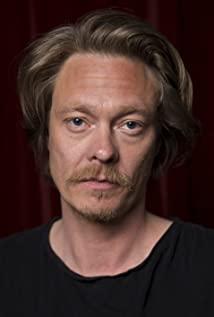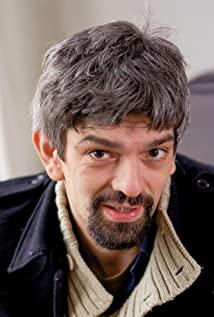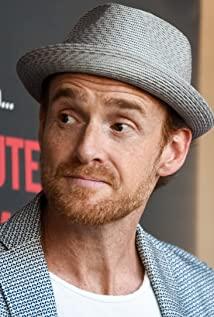When watching "The Revenant", like most of the audience, I was attracted by the almost insanely beautiful pictures in the movie. A scene-like chilling and bleak vibe continued to the end. I think this year's 140-minute one-shot "Victoria" in Germany can really be eliminated like stepping on a grasshopper in front of him.
To be honest, no matter how much I pity Roger Deakins' thirteen-time Oscar nominations, or the film's cinematographer, Emmanuel Lubetsky, who has won the Oscar for Best Cinematography two years in a row, I just wanted to roar: the Oscars would be utterly unconscionable if they didn't give Lubetsky a third cinematography award!
But no matter how much I admire the scene scheduling in the film, it is the same as AGI (Alejandro Gonzalez Inarritu, the director of this film) previous work "Birdman", the work is complete and beautiful, the theme Bold and ambitious, but after watching this movie, I always seem to have a little pimple in my heart, and then I found out for myself that the movie was still a little short.
To discuss this point of view, we have to start with the Mexican director's previous work, Birdman, a story about a past star in a one-shot narrative. , whether it is the actors, the scenes and the progress of the various plots, they are all smooth and nothing to say, and compared with some other art movies that are shot by hand alone, this movie is more advanced for fans, no matter from the theme, card Si, technically speaking, it's a level that many directors can't even dream of.
However, under this premise, I also feel that the irony and conflict of the whole film are superficial. The director can only use various dreams and the most superficial illusions to tell us that he is very unwilling, he is very heartbroken, he I really want to continue to accept the halo of the former star. In such an impressive lens language, the simplicity of the entire play is not important. This is also where I am very puzzled. Is "Birdman" a masterpiece? Unfortunately I don't think so.
In "The Revenant", this pursuit of visual language and the weakening of the play is even intensified. It is obviously adapted from a novel by Michael Pons, but I always feel that the story is very simple and a little surprising: Similar to a western revenge story. It describes in great detail how Xiao Li went through this process of returning from the dead, and finally got revenge with the help of the Indians.
The story is complete, but there is something missing, what is missing?
A friend told me that what this movie lacks is social meaning. It does not teach us anything, and I deny this view. Social significance is not important in a movie, and I have to stress this point, because many people are really used to thinking that a movie is good because it has a high social significance, such as "The Shawshank Redemption", It's Acura that wants people to grow.
Social meaning is only a part of a movie, it can never be the heart of a movie. Movies can be talked about in a social sense, but in fact, it can be successful without this meaning. Otherwise, why do everyone hate movies with the theme of "Hundred Regiments" and "Three Days and Nights of Zhou Enlai"? "The Shawshank Redemption" will be elevated to such a position precisely because its storytelling magic is impeccable, but everyone ignores other aspects of the film and amplifies its social significance.
Going back to the topic we just talked about, if it is not a social meaning, what is it? Here, I hope to compare this year's other very similar film "Mad Max: Fury Road" (hereinafter referred to as "Crazy"), because they all have a lot in common.
Also played by Mr. Tang (Tom Hardy), in "Crazy", no matter how taciturn he is, everyone can observe the changes in his heart, from hostility to cooperation with female warrior Furiosa, From a nameless wanderer to recognizing his identity again; and in "The Revenant", Fitzgerald, the villain played by Mr. Tang, has a strong accent and talks all day long, with a snake-like poison in his heart heart of. However, until the end, you didn't think there was any bright spot in this character, he was just a simple and vicious person, and this is a two-and-a-half-hour characterization!
That's right, the first point of "The Revenant" is that there are no lifelike characters, and the same is true of the male protagonist Glass.
And the second point, it is precisely in the "sublimation", the AGI director has not been successful.
But before I criticize, I must affirm the AGI director, as a director who has been shooting multiple narratives before, he has made a major breakthrough for himself two years in a row ("Birdman", "The Revenant"), even if this film With such a large investment in the movie, he still maintains the original authorship like the director of "Crazy", George Miller, with less soundtrack, long shots, and a lot of bloody scenes, which is incompatible with the audience who likes to watch popcorn. expectations are completely violated.
But exactly the opposite of George Miller, AGI spends this authorship on the sense of picture, while "Crazy" combines the sense of picture and connotation.
But this kind of evaluation is not fair, because in "Wild", it is not that there is no place for sublimation, such as the dialogue between Fitzgerald and the child with him in the cave, the villain talks about the relationship with On the topic of God, I strongly thought of the last police officer's muttering in "No Country for Old Men", and these few words made the theme of the film more heavy and thick. But in the words of the villain in "Huang", I just concluded that my father suddenly believed in God, and that he spurned God, it would not improve the quality of the whole movie much, and this may change the film. It's a shame that the tone of the film is so bland.
In the more important part of the film, in the fantasy part of Grasse (Leonardo), the hallucination of his former Indian wife, the figure of his dead son, and the pile of bones like a mountain under the thick fog is a bit interesting. Under the ghostly stillness of the camera and the surrounding environment, it really reflects the change in Grasse's heart. However, this is still too simple. After watching it, I kept thinking about the similarities with "Birdman". "Birdman" also has visions of the protagonist's inner turmoil. Although these visions are impressive, they do not give people any aftertaste.
The best proof for this point of view is that after reading it and thinking back carefully, I did not have any other interpretations of these images. This is actually the best proof. These things can only be regarded as tasteless and tasteless. Make the movie meaningful.
Like "Huang", "Crazy" is also weak in narrative and strong in graphics. And compared to the unique images in the ice and snow, "Mad Max" is more like a popcorn movie, with explosions, fights, big scenes, and everything. But what is surprising is that "Crazy" is far more than "Wild" in terms of charm.
First of all, "Crazy" has a unique world view called wasteland culture. The characters and sets in it all have their own characteristics, and the audience can dig a lot of fresh information from it; secondly, the emotional impact of "Crazy" The power is overwhelming, and there are subtle emotional changes. If these are completely different from the theme of "Huang", then in the final sublimation of the theme, "Huang" is far incomparable. In "Mad Max", there are everywhere but also from The feminism that is not directly expressed makes it a monumental work.
In fact, it is even more coincidental that in the recording of the dialogue directed by George Miller, he himself clarified that he really didn't think much about feminism at that time. It also makes people feel very interesting, a work can sometimes express more than the director himself thinks, and such events are difficult to predict, which actually confirms that the definition of a masterpiece in the future is unpredictable of.
And my opinion of the director of AGI is that even though he has shown in these two films that he has ambitions to break out of the field he does not know, but in essence, he has not made a substantial step, which is really amazing Regret.
As I write this, AGI has become the third director to win a director Oscar in a row, but I question whether he can actually live up to that honor. When I was writing the article, I kept thinking about whether AGI could have a masterpiece that was handed down to the world. Counting it down, AGI has already made six feature films, and the reviews are all good, but in my opinion, none of them can be regarded as a masterpiece, and his defeats "Boyhood" and "Mad Max" have already been released. After becoming a recognized masterpiece, the status of "Birdman" and "The Revenant" will only be more embarrassing. Only after the two labels of Xiao Li's reign as emperor and the reeling director can be mentioned, AGI's works may be submerged in the torrent of the times.
Of course, when it comes to the future, everything is full of contingency, and there is a lot of discussion here, so let's leave it to time itself. Just like the dangerous forest and the people who traveled through it hundreds of years ago, the thickness of history needs to be deposited, and this is not something that can be explained clearly by mouth.
Therefore, I can often think of the scene when Glass swallowed a fish alive, and when he climbed a steep slope, he saw a group of cows being hunted by wolves, their hooves galloping, and the ground was shaken like hell reborn. The madness and enchantment of nature Perfectly presented in this scene, but the next second, several wolves are shot dead, and Glass finds a savior. In this section, the atmosphere that was previously created seems to be wilted like breaking a balloon. The mood I watched this episode was probably the most accurate interpretation of the entire movie.
View more about The Revenant reviews


